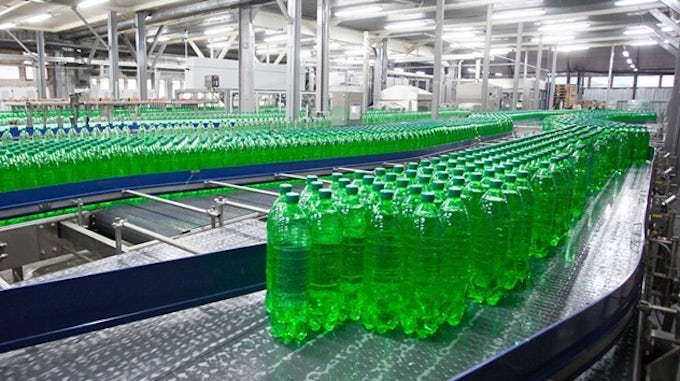Track lubrication with water and soap: not always the best solution
Prevent damage from moisture and disinfectants, increase machine reliability
Conveyor systems are a crucial part of many industrial processes. Their reliable operation is essential to maintain an optimal process flow. In sectors such as the food industry, water and soap are often used as track lubricants. However, maintenance teams face specific challenges: moisture and disinfectants can degrade lubrication, leading to bacterial growth, wear, downtime, and costly repairs.
Why moisture and disinfectants cause problems
Moisture plays a dual role in the food and beverage industry. On the one hand, water (often combined with soap) is used for track lubrication and intensive cleaning routines, typically in combination with disinfectants. On the other hand, excess moisture has drawbacks.
- It can reduce the lubricating properties of standard lubricants, resulting in insufficient protection.
- In contact with air, moisture accelerates corrosion, shortening the lifespan of critical components.
In hygiene-sensitive environments such as food production, aggressive disinfectants are essential to ensure food safety. Unfortunately, these chemicals also break down many lubricants, causing a loss of protective properties and faster wear.

How to deal with these influences?
Use the right lubricant
Choose a lubricant designed to withstand both moisture and disinfectants, such as Interflon Food Lube AL. Thanks to MicPol® technology, this lubricant offers strong adhesion to surfaces and does not emulsify with water. The result: water-repellent properties that protect against washout, reduce wear, and extend equipment lifetime.
Advantages of Interflon Food Lube AL compared to water and soap in track lubrication:
- Relatively dry film: reduced risk of dripping and slip hazards
- Exceptional resistance to washout and water contamination
- High resistance to dirt, dust, and other contaminants
- NSF H1 registration (HACCP compliant)
- PFAS-free for future-proof compliance
- Free from MOSH and MOAH*
- Complies with occupational safety, environmental, and legal requirements
Develop a robust maintenance strategy
A structured maintenance strategy further reduces the negative effects of moisture and disinfectants. Schedule regular inspections of lubrication points and ensure proper reporting routines, supported by maintenance software where possible. This enables precise application of the right amount of lubricant at the right time, not too early and not too late. helping minimise unnecessary downtime and cost.
Conclusion
Track lubrication with water and soap, combined with frequent cleaning and disinfectants, creates significant challenges. By switching to lubricants resistant to these influences, such as Interflon Food Lube AL, and by implementing a structured maintenance strategy, companies can extend equipment lifetime and safeguard process reliability.
* The distinction between MOSH and certain synthetic components cannot yet be determined with 100% accuracy using current analytical techniques. Interflon only uses raw materials free from mineral oils.



